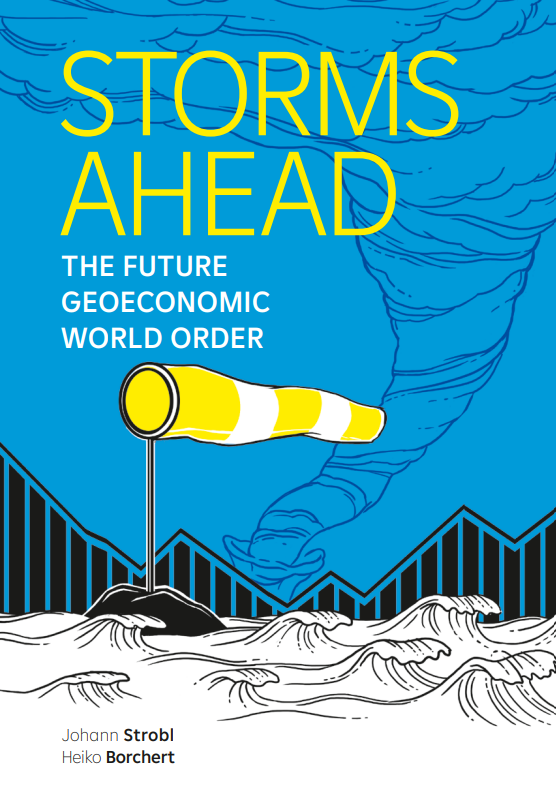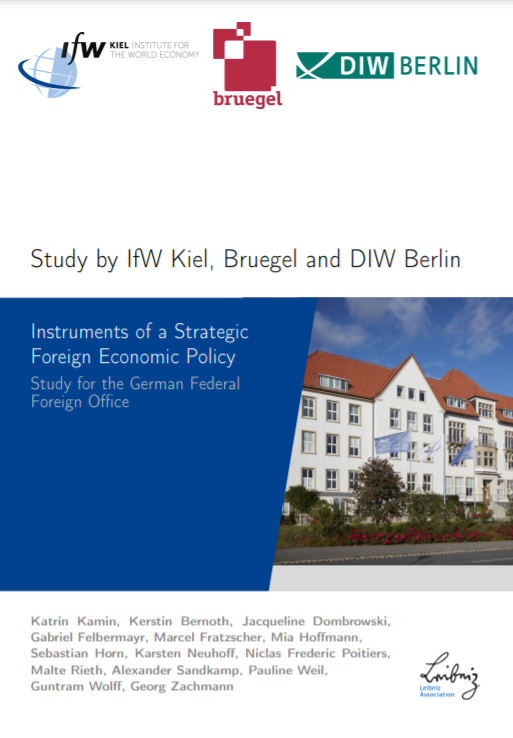Opinion
The great macro divergence
Global growth is expected to continue in 2019 and 2020, albeit at a slower pace. Forecasters are notoriously bad, however, at spotting macroeconomic turning points and the road ahead is hard to read. Potential obstacles abound.
“The global expansion has peaked,” the OECD warns in its latest economic outlook, and performance could be weaker if downside risks materialise. The party is not over yet: global growth is expected to continue in 2019 and 2020, though at a slower pace. But forecasters are notoriously bad at spotting macroeconomic turning points, and the road ahead is hard to read.
Potential obstacles abound: more aggressive monetary tightening, especially in the United States; a further escalation of protectionism; a harder-than-expected economic landing in China; and a return of tensions in the euro zone, triggered by concerns over the fate of Italian finances. All or any could intensify a slowdown that has started already.
A US recession would frustrate President Donald Trump as he seeks re-election in 2020, but it would not be at odds with established patterns. The expansion officially started in June 2009, and by July 2019 it will be the longest in US economic history. Unemployment is at its lowest level since the 1960s.
In such conditions, the Trump administration’s policy mix of massive tax cuts and spending increases – a fiscal stimulus as significant as the one used in 2009 to ward off an impeding depression – makes no economic sense. It leaves the Federal Reserve only two choices: raise interest rates more aggressively to offset an ill-timed stimulus, or capitulate. Such an irresponsible game of chicken between America’s fiscal and monetary authorities heightens the risk of instability for the rest of the world, given global sensitivity to the US interest-rate cycle.
A global recession would be more than premature for countries whose post-crisis recovery has been delayed, feeble, or both. Greece, where growth resumed only in 2017 and unemployment is still close to 20%, is an extreme case. But it is not alone. In Italy, per capita GDP is no higher than it was in the mid-1990s. And in Spain, France, South Korea, and elsewhere, unemployment is still significantly above pre-crisis levels.
The challenge there is to reintegrate into the labour force workers who have been unemployed for a prolonged period and are at risk of skills erosion. To avoid permanent socioeconomic damage, these countries need faster growth. An auspicious international context alone would not solve their problems. But it would help maximise the benefits of domestic reforms.
At the other extreme, Germany’s labour market is in far better shape than in it was 2007. Full employment prevails in the Western Länder, and economic growth relies more and more on immigration: in 2017, the net inflow – not refugees anymore, but largely fellow Europeans – totalled no less than 400,000 persons. Japan, the United Kingdom, and Poland have also enjoyed a job-rich recovery. Citizens complain about income, inequality, or rising house prices, not about the lack of jobs.
Ten years ago, nearly all advanced economies fell off the cliff simultaneously. Nowadays, they are neither structurally nor cyclically aligned. This is a concern, because the global economy’s approaching slowdown comes at a time of heightened political fragility. Trust in governments and policymaking institutions remains – understandably – very low. Collective economic mismanagement would only dent it further and fuel already-rising economic nationalism.
What should be done? The agenda starts at home. In many places where the labour market remains out of balance, domestic action is required to strengthen economic potential and improve access to employment. Despite 9% unemployment and President Emmanuel Macron’s reforms, employers in France report skilled labour shortages. This calls for a major training effort, support for mobility, incentives to accept job offers, and the opening of sheltered sectors. This is actually being done. But in Italy, the ruling coalition has embarked on a fiscal stimulus while proposing measures that will reduce labour-force participation. These include repealing the 2011 pensions reform and creating a “citizen’s income” which, if poorly designed or implemented, will result in more people falling into inactivity. It is this policy inconsistency, more than Italy’s departure from the European Union’s fiscal rules, that is a serious cause of concern.
The second priority is to get the balance of risks right. A debate has been mounting for some time between policy hawks, who warn that central banks’ asset purchases and near-zero interest rates fuel financial instability and inflation risks, and doves, whose main fear is deflation. Both concerns are real, yet there is more to say for the second than for the first. Real-estate bubbles can be contained through regulatory means, such as loan-to-value or loan-to-income ceilings for housing loans. As for inflation, forecasts have consistently been confounded. Wages so far have responded slowly to lower unemployment. There is a legitimate fear that they could start rising abruptly; but, after so many years of inflation undershooting, it is a risk worth taking. The collective cost of a temporary inflation overrun is dwarfed by that of a premature recession resulting in permanent scars and a political backlash against economic orthodoxy.
The third priority, international coordination, is by far the most difficult to achieve, especially in the euro zone, where the European Central Bank is running a single policy for disparate economies. The standard prescription would be to let the ECB target the average inflation rate and to rely on national fiscal policies to fine-tune the macroeconomic stance. But, because of elevated debts or remaining deficits, countries in need of further growth are also those that lack fiscal space. Neither Greece nor Italy, nor even Spain or France, can currently contemplate a meaningful fiscal stimulus.
Absent cross-country transfers (which the recent Franco-German agreement on a mini euro-zone budget is not meant to deliver), this is a further reason why the ECB should err on the side of audacity. It would leave to the governments of countries at risk of overheating the task of using fiscal means to cool down their economies – and to those of the still-struggling countries the task of unlocking their economic potential.
There are plenty of reasons to doubt that it can be done. But policymakers’ job is to manage risks, and those they are facing today are not the usual ones. What is at stake is the resilience of the global economic system. Cracks have appeared, despite a benign context. They should not be allowed to turn into fractures.
Republishing and referencing
Bruegel considers itself a public good and takes no institutional standpoint.
Due to copyright agreements we ask that you kindly email request to republish opinions that have appeared in print to [email protected].











